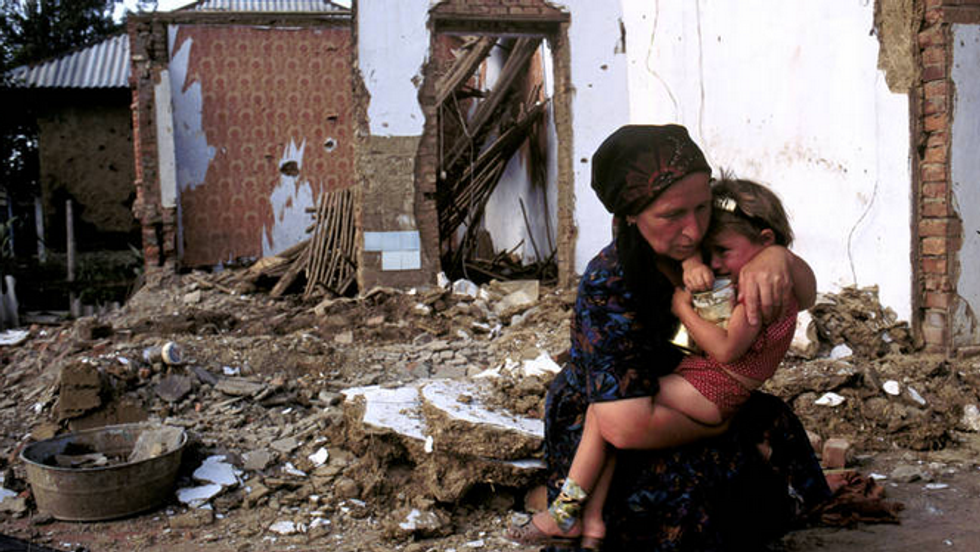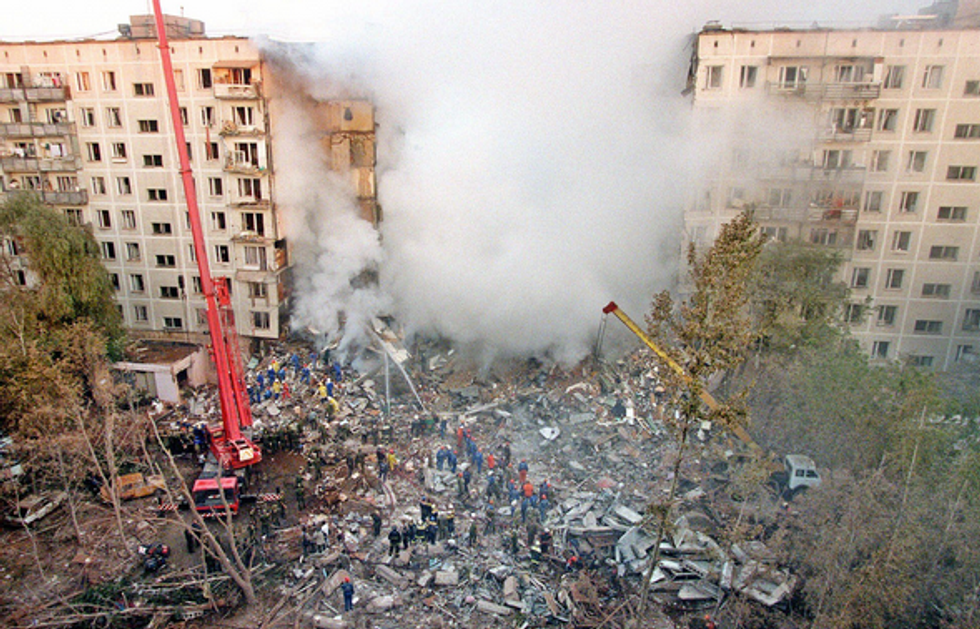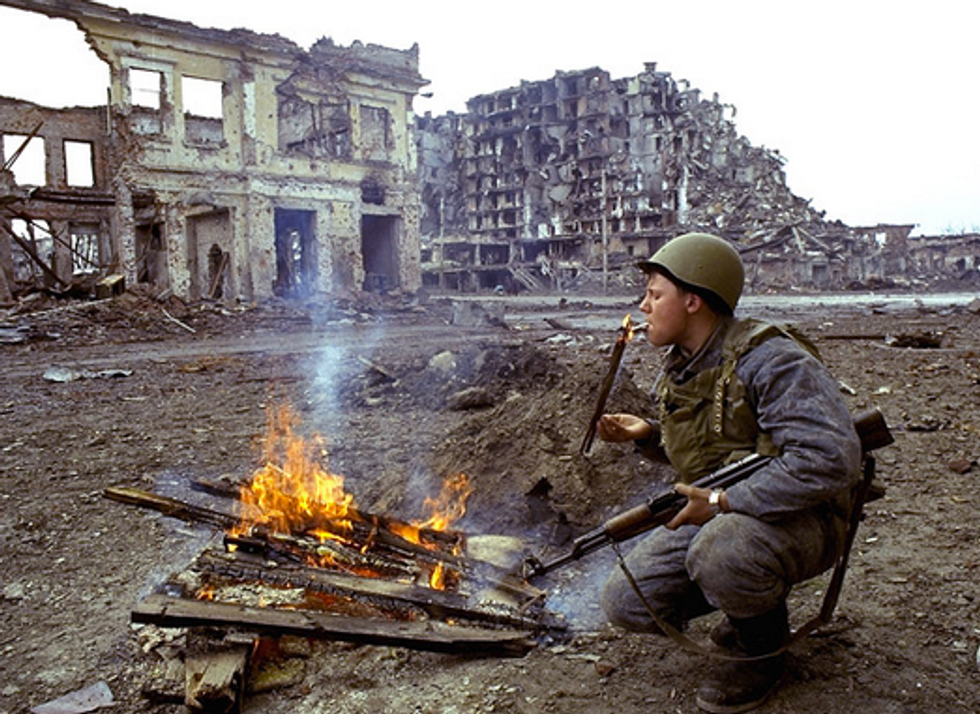Most know about the Second Chechen War that started in 1999 and continued till' May of 2000.However, the insurgency phase lasted till 2009. This war was launched by the Russian Federation under Vladimir Putin, as a response to the terrorist threats of the Islamic International Brigade, and more specifically, their Invasion of Dagestan. However, what most do not know is the massive impact this war had on the life of average Chechen civilians; we tend to be unaware of the day-to-day horrors of this war because of the heavy propaganda Russia had created, which eventually made the war to appear less violent and harmful than it actually was.
Russian writer Anna Politkovskaya tried to change this by going to Chechnya; she started reporting the war live through her own columns and articles. This went against the norms of Russian government orthodoxy and its main branches, Nationalism and Propaganda. Later, in 2006, Politkovskaya was assassinated for not being "loyal to her country"; However, her works still remain with us and help us understand the horrors of this extremely bloody and violent war.
"A Small Corner of Hell: Dispatches from Chechnya" by Anna Politkovskaya was published in 2003 by The University of Chicago Press. It is a 213-page-long journalistic book, which gives Politkovskaya’s first-person account of the Second Chechen War.
The structure of the book and accounts makes Politkovskaya’s message effective as it helps readers understand the various strands of the Chechen war. The book is divided into three parts; “Ordinary Chechen Life,” “Modern Russian Life,” and “Who Wants the War?”
Politkovskaya introduces the readers to people she encountered during her reporting of the war. Some of the most notable were Vakha, Khazimat Gambieva, and Malika Elmurzayeva, who are also later repeated in the concluding part called “Afterword.” The Chechen civilians and their accounts expose the readers to diverse issues. For example, Vakha’s incident explains the effects of the “hail” and Katyusha rocket launcher, and the kind of haunting and hopeless atmosphere it creates. Similarly, the column on Khazimat shows another element of the war; it exposes the social problems of the life of a Chechen refugee, suggesting the intensity of food shortages causing “chronic hunger” and “dystrophy.”
The descriptions give a sense of unpredictability to the atmosphere as everything changes in the "fog of war." It is very easy for readers to visualize the situation, as it is almost as if the circumstances are being brought to life once again. The graphic imagery helps scholars and readers understand the average, everyday life of an innocent Chechen civilian of the war period.
The main argument Politkovskaya makes is that during the Chechen war, greater terrorism, violence, and fear came from the anti-terrorist Russian operations than from the "Wahabi" terrorists themselves. In addition, the effect of these operations and purges was far more intense than that of "terrorist attacks,", and “even so-called ‘protection’ is worse than the terror itself.” She suggests that destruction is happening either way and that the Russian actions only amplified destruction.
In my perspective, this book was specifically designed to target the general public of Russia. It illustrates the harsh realities of the war and hopes to erase the blinded notion of Russian nationalism, as it appears to be a harmful policy in the Chechen situation. The constant repetition of the idea that “no one knew in Moscow” hints that Politkovskaya’s goal was a change in policy. Along with the social circumstances, she also wanted to expose the beneficiaries of the war; she includes material on oil dividends and explains how the creation of “false reports” took place.
Overall, "A Small Corner of Hell" has helped me understand the problems of Russian orthodoxy and nationalism. It gave an accurate picture of the “purges”: a violent eradication of unwanted people from a particular place; in Chechnya’s case, it was the “Wahabi terrorists.” This helped me understand the impact of such disastrous events. However, if the structure had been more organized in terms of repetition and continuation of incidents in different parts, the message would have been more direct and effective. The lack of chronology makes Politkovskaya’s writing more literary and emotional, as it causes the readers to make connections within different collections and works. This makes us sympathize with the people mentioned in the book. The sympathetic response of the readers is a sign of greater engagement that helps them view a very accurate picture of the Chechen war, and this is, I believe, was Politkovskaya’s ultimate goal.














































